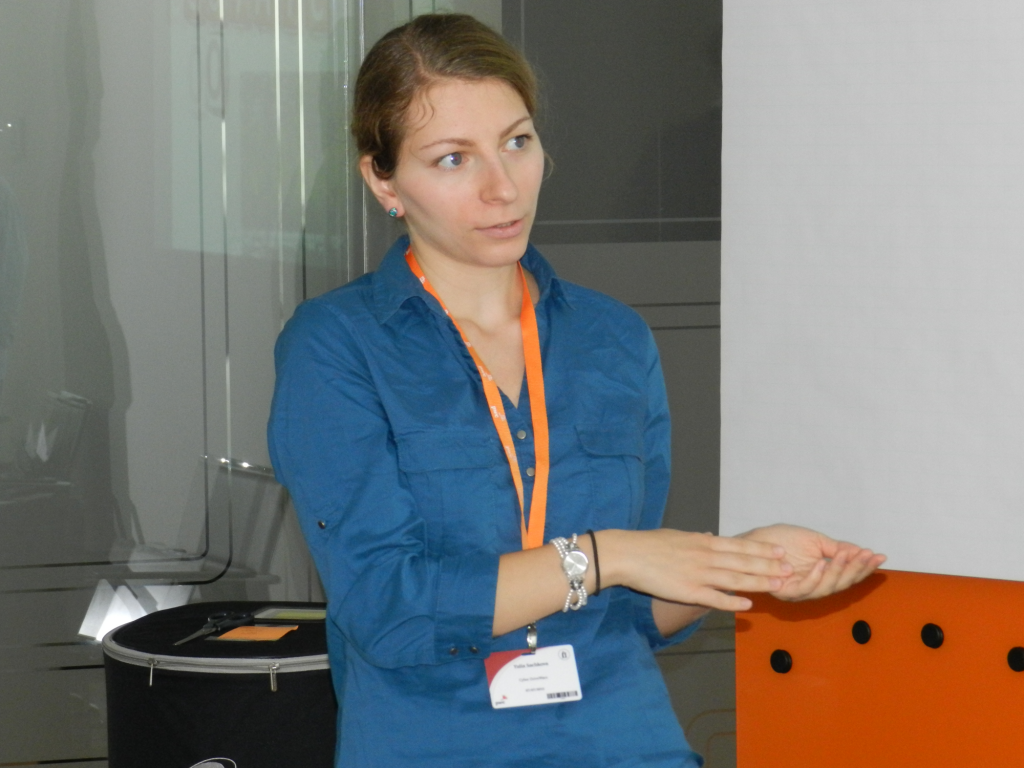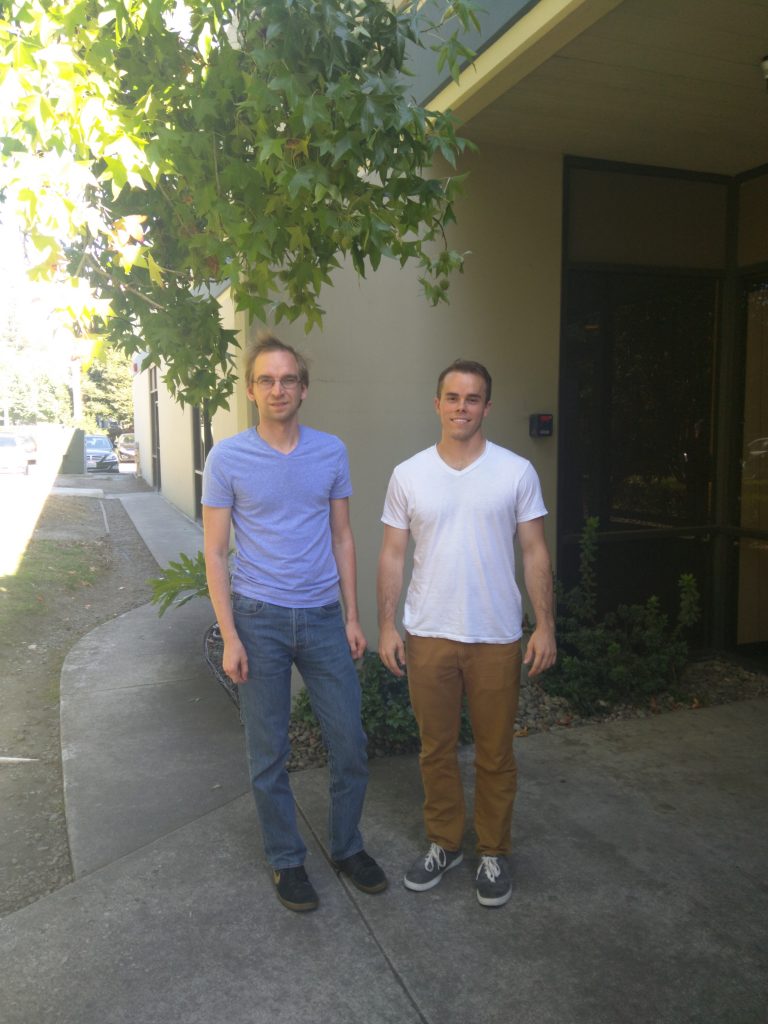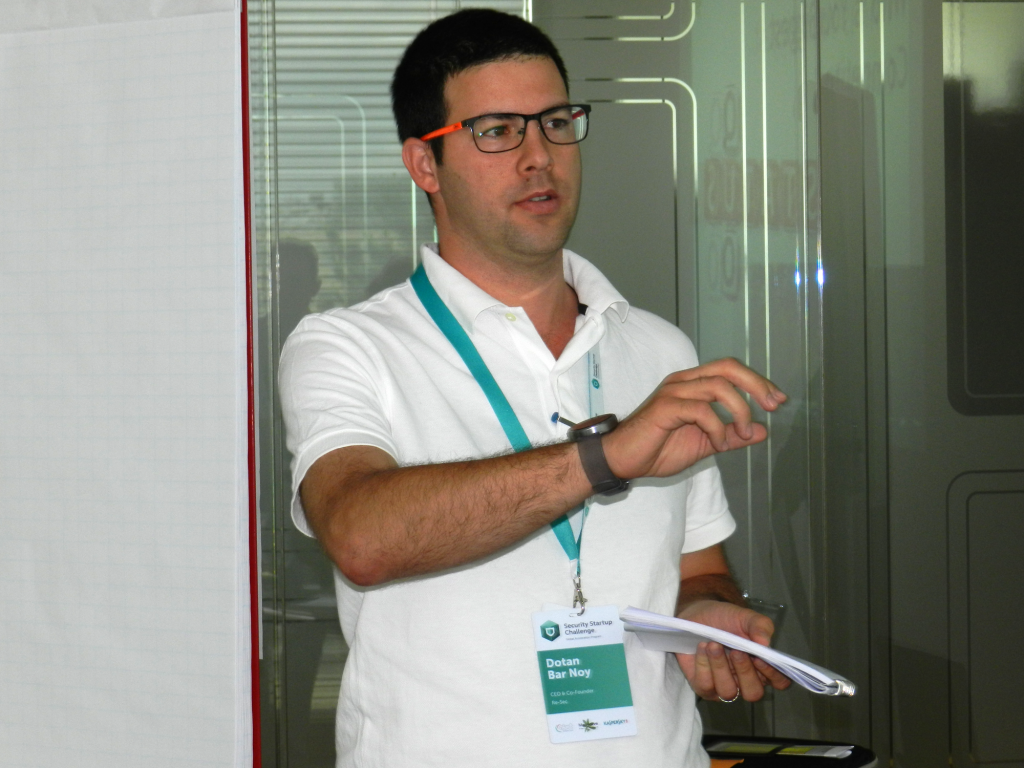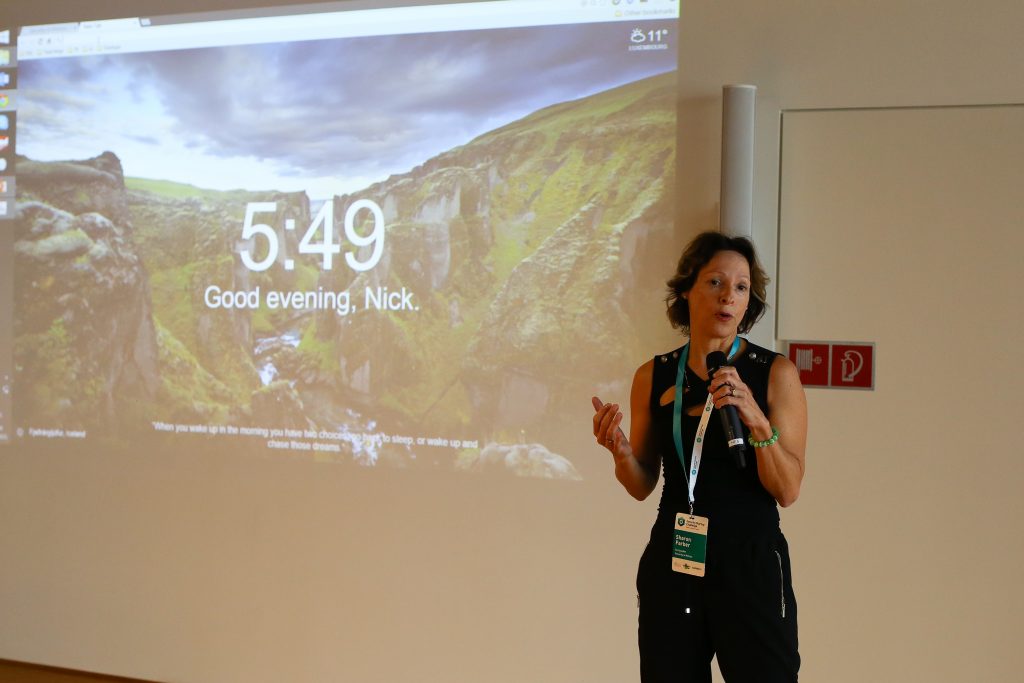Earlier this year, the team at Kaspersky Lab partnered with Mangrove and ABRT Venture Funds to launch the Security Startup Challenge. In short, the goal of the program was to launch a three-month acceleration program to help a startup in the cybersecurity industry to get their product into market.
The program also hosted a series of workshops across the globe that paired the startups with mentors and offered educational sessions for the companies to learn the in’s and outs of launching a company from marketing to bookkeeping. On August 13, the competition comes to a close and a winner will be announced at MIT’s Media Lab. If you are in the Boston area and would like to attend the ceremony, you can grab a free ticket here.
In advance of the Grand Final, we sat down with the teams making the trip to the final to see how this program impacted their businesses. Participants included Jamey Merkel from Keygo, Haggai Yedidya of Cyber DriveWare, Excalibur’s Ivan Klimek, MacLane Wilkison of ZeroDB, Dotan Bar Noy from Re-Sec, CTF365’s Marius Corîci, Sharon Farber of SecurityInMotion, Crypho’s Geir Bækholt, and Nils Kenneweg of Whispeer.
What drove you to enter the SSC competition?
Haggai Yedidya: At DriveWare, we believe that a good mentoring and accelerator program can provide many added values for most startups. SSC was not only a mentoring program, but also a global one, which specializes in cybersecurity. By definition, for us this fit is as good as it gets.
We were looking to grow and learn more about worldwide markets, penetration strategies, pricing models, B2B sales, handling engagement barriers and so on. Furthermore, the ability to work with technological experts in cyber security seemed priceless, and so it was!

Beyond the fun, networking and a great social experience, we’ve seen SSC as an opportunity to grow, specifically in business development and technology-related fields.
MacLane Wilkison: We saw an opportunity to partner with and learn from one of the leading cybersecurity firms in the world (Kaspersky), two seasoned venture funds with a track record of investing in successful technology startups (Mangrove and ABRT), and a strong group of mentors with deep experience in both technology and business. We felt that the SSC competition would sharpen our team from a technology, product, and business standpoint and rapidly accelerate our company’s progress.
Nils Kenneweg whispeer is a very young company and we are always looking for challenges and ideas to improve ourselves. We entered SSC mainly for two reasons:
1. We are deeply interested in connecting to other founders in the security sector and in getting to know more about their ideas and their take on security. A lot of the companies taking part in the SSC have interesting and innovative ideas on how to improve security in very different areas and the exchange with those companies and the tech experts has been very helpful.
2. SSC offered to improve our knowledge on how to get more users and improve their experience, which has proven to be true. The competition also helped us to focus our expertise within our startup so we could grow more efficiently.
Ivan Klimek We love challenges, it provides us with external pressure which is perfect for motivation. We have been working on Excalibur for quite some time now, as you know when you work on something for “too long” even if it is the “best thing ever” productivity, creativity and of course team morale will necessarily decrease. The harder the challenge the better and SSC was for us without doubt the hardest challenge ever as it took us out of our comfort zone – we are perfectly fine solving technical problems however complex or “impossible” they might be, but SSC is about measurable growth powered by data driven decisions. As always – one grows only when taken out of comfort zone – proved correct. We were finally able to move from internal beta testing to public beta test. In fact we released our very first public beta version just after the first SSC Bootcamp. This was a huge step for us – SSC helped us finally get “something out” and drive user adoption efficiently.
Sharon Farber It was good timing for us as we were just looking for a good program for our new company and Kaspersky was a perfect fit. We thought that hanging out with other cyber companies would be a good environment for us to grow and it turned out to be true.
Dotan Bar Noy Kaspersky is one of the world’s leading software securities companies. When we first heard of the competition it was clear that that is a place that we wanted to be at. Although we are still a small startup, our solution can complement Kaspersky, and other security software solutions, battling cyber modern known & unknown security threats.
Geir Bækholt Two main things drove us to enter the SSC competition. It felt relevant as it was focused on Information Security. Too many of these events are focused on Startups in general. The other part was Kaspersky’s weight as supporter and sponsor of it. Kaspersky has a strong brand.
Jamey Merkel The opportunity join SSC actually came about by chance. I met the SSC team in Singapore, and they introduced me to the program. I thought it would be an exciting opportunity to help me improve my startup and well, as they say, the rest is history. We are super excited to be in the finals!
Marius Corîci As a startup, you must be very carefully when you choose to apply and enter to an accelerator program. We receive a lot of startup accelerator invitations but because most of them are not security-centered we had to pass on them.
SSC is special. Is special because of its security focus, quality and well-balanced organizers. By well-balanced organizers, I mean government institutions and private held companies coming from investment, innovation and security sectors, with top level mentors and speakers. This gives participants the perfect training/development recipe.
What are the biggest challenges for you entering the security space?
Yedidya The cyber security field is tight and busy. While there are so many emerging security threats, there’s also a sense that enterprises are over capacitated with so many security, compliance and defense solutions. There is an overall feeling among enterprises that adding additional layers of cyber-defense, as well as managing them, is a real burden. Naturally, enterprises prefer to work with either one or few market leaders, which will provide holistic solutions, compared with many specialized providers.
Reality teaches us that cyber security startups sometimes offer specialized protection and capabilities, in such niches where established cyber security companies fail to protect. When the risk or pain are significant, then enterprises may be required to readjust and be more flexible, i.e. open their doors for startups and not only established players. There seem to be no satisfactory substitute to working with specialty solutions, when it comes to some of the most critical niches, such as Firmware Virus and Destructive Malware.
In conclusion, penetrating the market is a natural challenge as the industry is saturated with security-related solutions. However, Cyber DriveWare offers a solution to a real deep pain, and fortunately enough, our field of expertise, Destructive-Malware protection has recently raised major alerts in various segments. If our niche was not that significant, then we’d probably had no choice but to extend our offering to a such that replaces other existing layers (rather than grow to such a place step by step, starting from an add-on layer).

Wilkison Our customers are large enterprises dealing with sensitive data (financial services, healthcare, governments, etc.). They are rightly very conservative when it comes to data security and preventing data breaches – as such, the standards they expect from security vendors are quite high from both a business and technology standpoint and they are suspicious of adopting new crypto-systems. Overcoming this initial resistance was the biggest challenge for us initially – one we’ve finally started to overcome with the help of SSC.
Kenneweg The biggest challenge is to connect to potential users and explain to
them what our product does and why they should use it.
Klimek Reputation – most startups start with recognized advisers – somebody that is well known in the field, this gives them an edge because they are immediately taken seriously. We had to build our reputation from scratch, step by step just by our own innovation and disruptiveness. Things would probably move faster if we would have a recognized adviser helping us from the beginning, but this way – we have grown personally because we had to learn adapt and fight the odds from the
bottom up. We don’t regret anything, but for any aspiring startup out there- we are not saying you should follow our example, it requires levels of persistence few are capable of.
Farber Quite frankly, Security space is a natural place for us since both Dror and I, founders of Security inMotion, spent the last 15 years in this arena. However, entering the automotive industry while it is going through a transformation due to security risks, introduced many challenges. In a way, it reminded us of the IT Enterprises back in the 90’s.

Bar Noy While Re-Sec’s Content Disarm & Reconstruct (‘CDR’) is a unique cyber prevention technology, our main challenges are associated to marketing development. The security solution market is very crowded, dominated by a few large vendors and numerous small vendors. Our main challenges are entering new markets and conveying our message to potential customers.
Bækholt Raising security awareness in businesses. Many security challenges are fundamentally complex problems. Finding the proper channels and processes for sales and marketing.
MerkelFor me personally, the challenge is that my background is not in security. I do believe that security is a tool to achieve privacy, and that is my attraction to this space. The tech itself is fascinating and I love how it facilitates my desire to have a private digital life.
CorîciBiggest challenges entering the security space is to be recognized by the industry leaders as an important asset for infosec industry.
What piece of advice have you learned along your startup journey do you wish you knew before starting?
Yedidya: I believe there is no one piece of advice we learned that overgrows all the others. For DriveWare, the great value of SSC was formed throughout the accumulation of many good tips and advices.
Today when I meet with customers or investors, I have a substantial understanding of the market, of the eco-system and technological environment where we operate. I am confident in what I know, as I have gained or validated this knowledge with 1st tier Kaspersky’s experts.
Many times we hear questions from investors or customers regarding performance hit, the required admin-rights, possible code vulnerabilities, software distribution aspects, fear of kernel-level bugs (blue screens), and all kind of other barriers. Being able to stand firmly and give the best answers I can, after validating those answers with worldwide experts (and Oleg Ishanov included), gives us the advantage.
Wilkison Ruthlessly prioritize – the only things that matter are writing code and talking to customers – do as much of that as possible. Also, the MEDDIC framework is a helpful approach to enterprise sales.
Kenneweg Press is harder to get than we expected. Working on a very low budget
(<10k) is super hard.
Klimek Most people underestimate the levels of persistence required to do a startup, it is not a sprint it is a long distance marathon run! For me this is the best explanation how it works – my favorite free time activity is endurance trail running – there I learned long time ago that it is not about muscle, it is just about your mind set – if you can endure against all odds and push forward whatever happens – then there is chance you can make it. But even so, it will most probably take way more time and energy than you could ever imagine. So the advice would be to really think twice how much can one sacrifice for success, because startup life takes its price on personal life and even health – for example me – most people guess I am 10 to 15 years older than I actually am!

Farber‘Focus’ was a big lesson for us. Our mentors pushed us to focus at one thing at a time and they literally got us out of the building. We invested into Customer Validation surveys and immediately got results – that was a good lesson.
Bar Noy We would divide our advice to a few parts. Please bear in mind that we are B2B:
Development – the first developers are the most important and you need the best people you can get, although they may cost more.
Product – Talk to clients in a structured manner. If you have a couple of development partner – set a “weekly” meetings with them to learn of their needs. Try to adjust to those needs, but make sure you always remain focused on your main development goal. You must always create a balance between the moment to moment needs and the overall development plan. Marketing – You need a website, you need a PR etc., but don’t spend too much money or time about it. Fund raising – If a VC is really interested it will move quickly. If they say “we need to think” or “let me discuss with my partners” that is a sign the meeting was not as good as you might think it was.
BækholtBefore starting on our startup, I wish I had known more how much research, experimentation and customer development it is possible to do before building software.
MerkelThe best piece of advice I can give, is that no matter how hard you think it is to build a startup, you are both right and wrong. The amount of effort you will have to put in is extraordinary but the end result of seeing your vision come to life is worth it!
Corîci Meeting great mentors and listening to their stories was awesome. Each of their stories hidden a lot of useful insights.
 Crypho
Crypho

 Tips
Tips